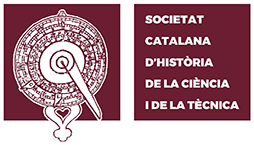Col·loquis de la SCHCT (2020-2021)
“The role of the state in the Great Divergence”
Ponent: Peer Vries
Dijous 17 de juny de 2021, 18:30h
Sessió online
Coordinadors: Oliver Hochadel (IMF-CSIC), Daniele Cozzoli (UPF) i Agustí Nieto-Galan (UAB).
Cicle: Global History of Science Seminar
For several decades one of the biggest debates in global (economic) history has been on the Great Divergence that led to a situation in which part of the world, usually in shorthand called ‘the West’, became so much wealthier than it had ever been before and than ‘the Rest’ of the world. In that debate a huge number of explanations has been presented, ranging from geography to culture and from very structural differences to quite ‘contingent’ events. In my research I have always focused on the role of the state in promoting, facilitating or blocking the type of economic growth that made ‘the West’ rich. I have done so systematically comparing three states, Great Britain, China and Japan in respectively the period from the 1680s to the 1850s, the late seventeenth century to the end of the rule of the Qing, and the second half of the period of Tokugawa rule to the beginning of the Pacific War. I chose these three countries because they represent one case where modern economic growth emerged quite early and was symbolized in the first industrial revolution, one where modern economic growth and industry failed to emerge although the country under discussion had an advanced economy and one where a country managed to begin to catch up fairly early on. In my talk I will systematically compare how the states of the three countries functioned and what they did and analyse to what extent that can help in explaining the economic trajectory of each of the countries. I will do so using theories and concepts from the social sciences in order to structure my argumentation. My thesis will be that the existence of a strong developmental state is a necessary precondition for modern economic growth. The absence of such a state in Qing China as compared to Great Britain and even more Japan in the periods discussed made a fundamental difference. In my talk I will use data and arguments from several books I wrote about the Great Divergence:
– Escaping poverty. The origins of modern economic growth (Vienna and Göttingen 2013)
– State, economy and the Great Divergence. Great Britain and China, 1680s to 1850s
– Averting a great divergence. The role of the state in Japan’s economic development, 1868-1937 (London 2019)
– Atlas of material life. North-western Europe and East Asia, 15th to 19th century (Leiden 2020) together with my wife Annelieke.
Peer Vries (International Institute of Social History in Amsterdam)
Peer Vries is Honorary Fellow at the International Institute of Social History in Amsterdam. Previously he worked as Professor of Global Economic History at the University of Vienna, Austria. After graduation Peer Vries got a job at the Department of History in Leiden. Until 1997 that job consisted only and fully of teaching. He taught a very broad range of topics at all levels of the curriculum in the ‘bachelor programme’ as well as in the ‘master programme’: economic and social history, methodology of historical research, historiography, philosophy of history, history of the early modern world, history of twentieth-century Spain and global history, always with a clear focus on economic and social aspects. Peer Vries has always liked to be interdisciplinary. He has taught, for example, an introduction into economics for historians, economic and social history for sociologists, modern history for political scientists and an introduction into history for art historians, he has extensive experience with teaching and evaluating PhD. students, not only in his work for the Posthumus Institute and for ESTER, but also in many courses for other research schools in which he has participated. The Posthumus Institute is a research school in which all those engaged in economic and social history at academic institutions in the Netherlands and Belgium participate. ESTER stands for European graduate School for Training in Economic and social-historical Research. In the ESTER Network some 50 European universities participate. Peer Vries helped to co-ordinate and participated in so-called Research Design Courses of this School in Amsterdam, Barcelona, Bari, Brescia, Budapest, Evora, Gent, Munster, Nijmegen, Paris and Tampere.


